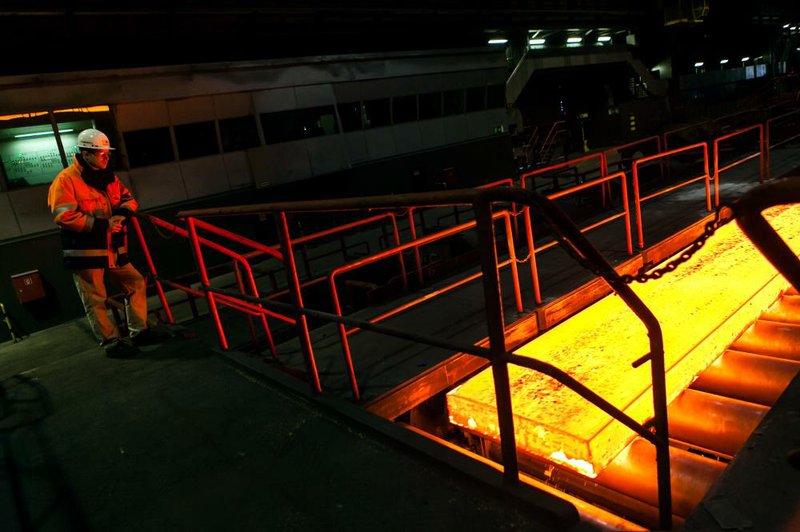LITTLE ROCK — ThyssenKrupp AG, Germany’s biggest steelmaker, said Friday that it intends to save $670 million by reorganizing its European steel business and cutting more than 2,000 jobs to reduce excess capacity.
ThyssenKrupp is considering “the closure, relocation or sale of business units and facilities,” the Essen-based company said in a statement. Plants in Germany’s Ruhr region and Spain may be affected by the plan. Asset disposals could lead to the departure of another 1,800 employees.
“The Steel Europe business area’s new management team has developed a package of measures to sustainably improve the steel unit’s profitability and competitiveness,” ThyssenKrupp said. “The optimization program plans to achieve a savings volume of around 500 million euros by the 2014 to 2015 fiscal year.”
European steelmakers are grappling with unneeded furnaces whose output is weighing on prices. The region can produce about 231 million tons of steel a year, while demand in a “normal market” is165 million to 176 million tons, according to industry lobby group Eurofer.
Steel-industry earnings have slumped as Europe’s economic crisis saps demand and slower Chinese growth weighs on commodity prices. Arcelor-Mittal, the biggest producer, this week reported its lowest quarterly profit in three years. The Luxembourg-based company has shuttered plants and cut jobs in Europe as it moves output to cheaper sites.
ArcelorMittal employs 98,000 people and demand for steel has dropped by 30percent since 2007, including a 9 percent decline in 2012. The company reported a $2.9 billion operating loss for the quarter in its European unit which supplies the beleaguered automobile industry.
Conditions have deteriorated since the financial crisis hit in 2008, with steel demand shrinking in Europe and North America, where ArcelorMittal has much of its operation.
“The European steel industry faces major challenges,” ThyssenKrupp said, citing high energy and raw material prices, economic uncertainties and reduced consumption.
ThyssenKrupp is selling its Steel Americas and stainless steel units as it cuts the number of business units from eight to five while expanding non-steel operations. Waning demand from the auto and construction industries has pushed down steel prices and squeezed producers’ profit margins.
Veysel Yayan, secretary general of the Iron & Steel Producers of Turkey, predicted a rebound in demand for steel in Europe and said government projects will create a demand for steel in the coming years.
Demand for steel in Turkey is growing as the government auctions construction projects that include a $6.5 billion highway to Istanbul from Izmir and a two-mile suspension bridge across the Sea of Marmara, as well as roads and housing. The increase in demand may drive a recovery in prices, which dropped about 7 percent last year, according to a Steel Business Briefing index.
“The government’s big infrastructure projects such as housing replacements, highways and railways, as well as a recovery that we expect in Europe, will help the steel industry and exports to grow this year,” Yayan said, estimating demand growth at 5.3 percent.
Information for this article was contributed by Thomas Biesheuvel and Ercan Ersoy of Bloomberg News and Stanely Reed of The International Herald Tribune.
Business, Pages 27 on 02/09/2013

